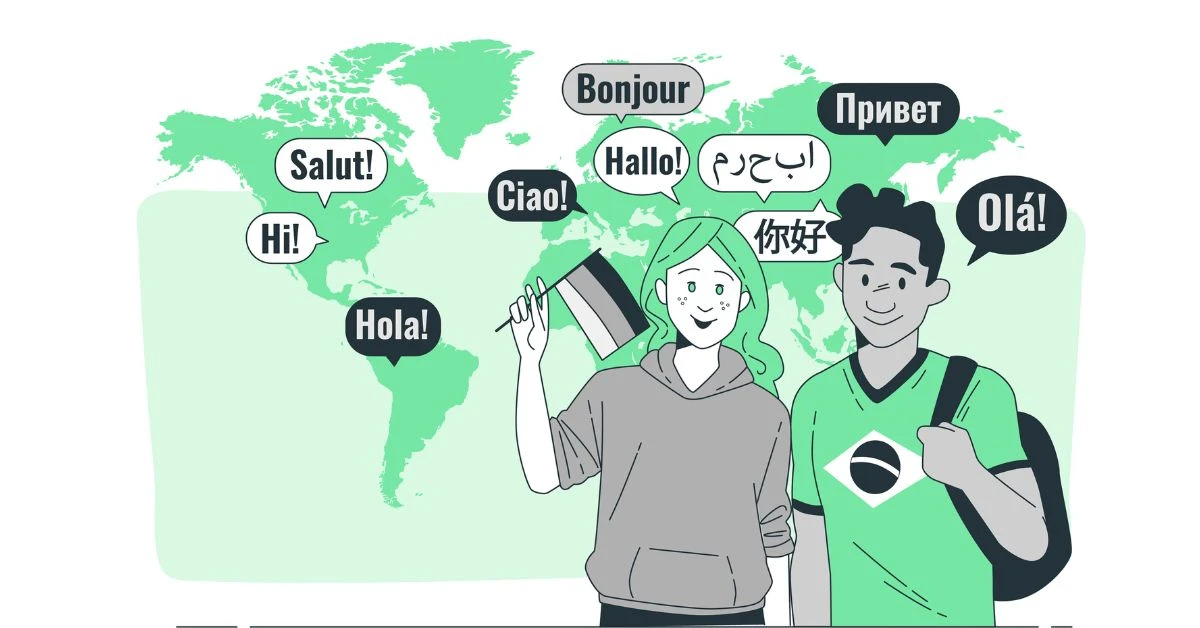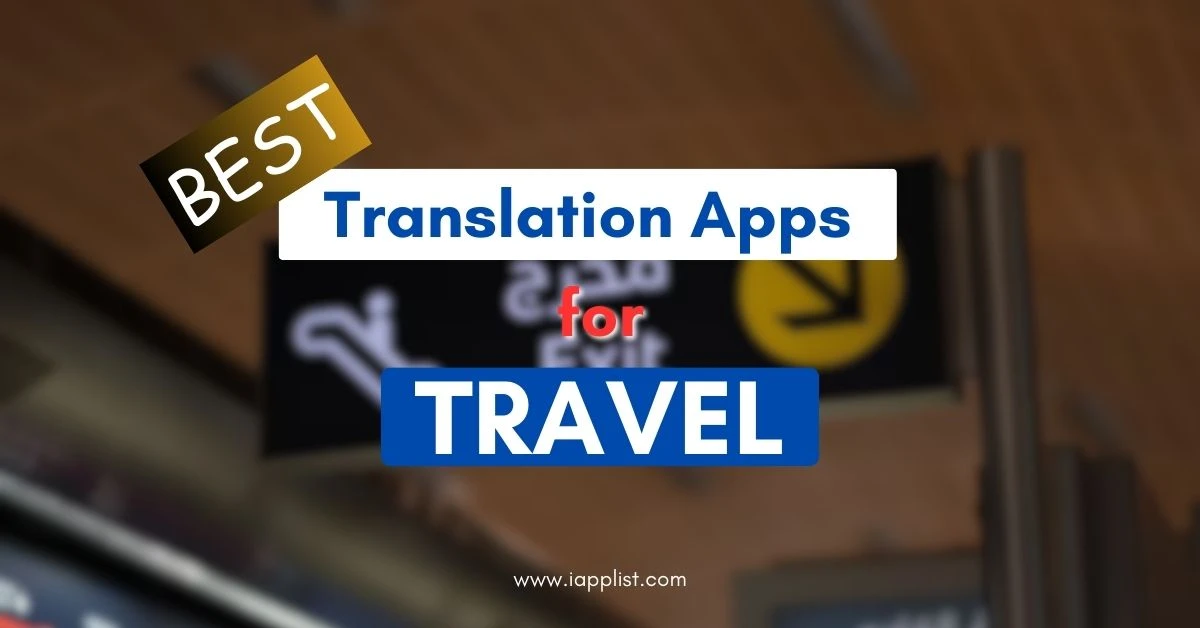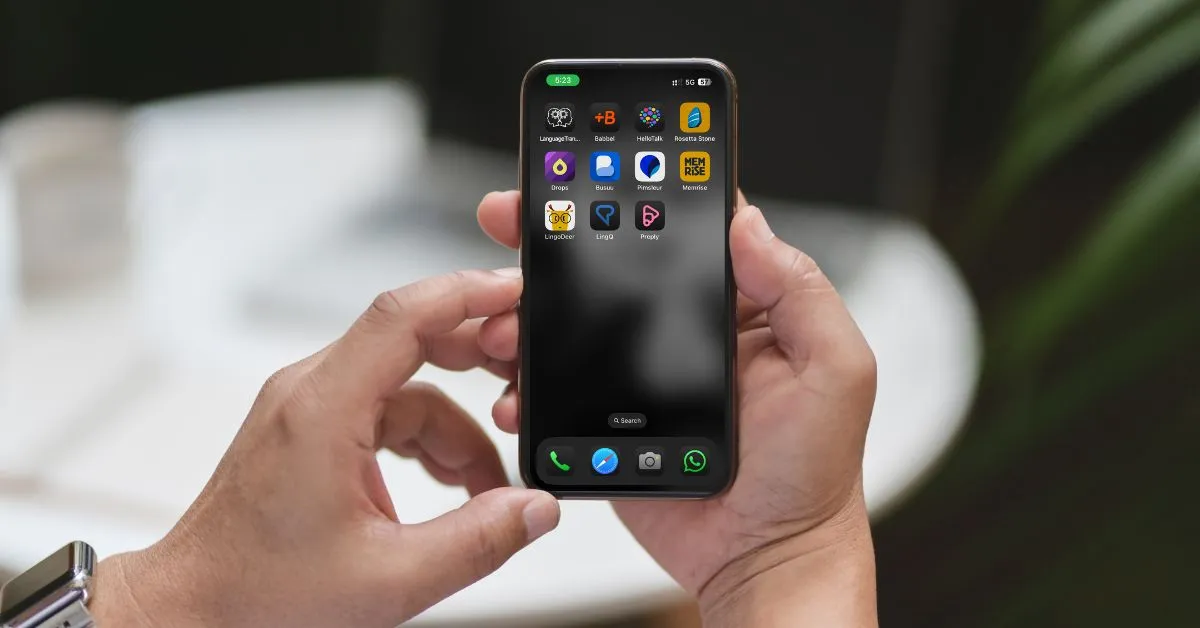21 Best Japanese Learning Apps to Master the Language Fast
Learning Japanese can feel overwhelming at first — all those new characters, tricky grammar rules, and endless vocabulary lists.
But here’s the good news: you don’t have to do it alone.
With the right app on your phone, you can practice kanji while waiting for the bus, chat with native speakers during lunch breaks, or listen to simple Japanese lessons before bed.
Whether you’re starting from zero or aiming to pass the JLPT, there’s an app out there that makes the journey easier (and way more fun).
In this guide, I’ve rounded up 21 of the best Japanese learning apps that cover everything from speaking and listening to reading and writing.
Let’s dive in and find the one that clicks for you.
1. Duolingo
If you’re just starting out with Japanese, Duolingo is often the first stop — and for good reason.
The app makes learning feel like a game, with short lessons, streaks, and rewards that keep you hooked.
You’ll start with hiragana and katakana before moving on to simple words, phrases, and basic grammar.
While it won’t make you fluent on its own, it’s a fantastic tool for building daily study habits.
The bite-sized approach is perfect if you’re busy and can only spare 10–15 minutes a day.
Plus, it’s free to use (with ads), so there’s no excuse not to give it a try.
Think of it as a fun entry point into your Japanese journey.
Also Read: Best Language Learning Apps
2. LingoDeer
Many learners say LingoDeer is where they really started to understand how Japanese works.
Unlike Duolingo, which leans more on repetition, LingoDeer explains grammar clearly and in context.
The lessons are structured in a way that makes sense for Japanese learners, guiding you from hiragana to full sentences step by step.
You’ll also get audio from native speakers, which helps a lot with pronunciation and listening practice.
One of the best parts… The grammar notes — they’re short, easy to follow, and actually useful when you’re trying to piece together sentences.
If you want an app that balances fun with solid explanations, LingoDeer is definitely worth downloading.
3. Busuu
Busuu takes a more community-driven approach to learning Japanese.
Along with structured lessons covering vocabulary, grammar, and dialogues, you can actually submit your writing or recordings for feedback from native speakers.
This makes it feel a little more “real-world” compared to just tapping on multiple-choice questions.
The app also lets you set daily goals and build a study plan, which is handy if you’re serious about progress.
While Busuu is great for beginners, it also supports learners who want to push further into conversations and writing practice.
If accountability and real feedback matter to you, Busuu gives you a nice blend of lessons and community interaction.
Also Read: Best Apps to Learn Russian
4. Rosetta Stone
Rosetta Stone has been around forever, and it’s still a solid choice if you want full immersion.
The app skips English explanations and teaches you Japanese the way kids learn their first language — by matching words with pictures, listening, and repeating.
At first, it can feel a little challenging since you don’t get direct translations, but that’s kind of the point.
Over time, you start thinking in Japanese instead of translating everything in your head.
It’s especially helpful for building a natural accent thanks to its speech recognition features.
While it’s more structured (and pricier) than most apps, it’s worth trying if you want a deep, immersive approach to learning.
5. Memrise
If memorizing new words and phrases is your biggest hurdle, Memrise makes it less painful.
The app uses spaced repetition and real-life video clips of native speakers, which makes the content feel way more natural than just flashcards.
You’ll practice vocabulary in fun, bite-sized exercises and get exposed to authentic Japanese pronunciation at the same time.
Another cool part is that Memrise often includes slang and casual phrases you might actually hear in Japan but won’t always find in textbooks.
It’s a great supplement app — you can pair it with something like LingoDeer or Rosetta Stone to balance out your grammar and speaking practice.
6. Pimsleur
If you’d rather focus on speaking and listening, Pimsleur is one of the best apps out there.
It’s entirely audio-based, which makes it perfect for learning on the go — during commutes, walks, or workouts.
Each lesson introduces you to useful phrases and then prompts you to repeat, recall, and respond, just like in a real conversation.
The method helps you train your ear to the natural rhythm of Japanese while building confidence to speak out loud.
Pimsleur doesn’t dive too deep into writing or kanji, but it shines when it comes to pronunciation and conversational skills.
It’s ideal for learners who want to speak Japanese rather than just read it.
Also Read: Best Apps to Learn Italian
7. Mondly
Mondly is a colorful, interactive app that makes learning Japanese feel fun and approachable.
Lessons are short, covering common phrases, vocabulary, and even chatbot-style conversations where you can practice speaking.
One of its coolest features is the augmented reality option, which lets you interact with virtual objects while learning the words for them.
It’s not as in-depth with grammar as some other apps, but it’s great for casual learners who want to pick up useful Japanese without feeling overwhelmed.
If you enjoy variety and visuals, Mondly keeps things light and engaging.
8. Babbel
Babbel is known for its practical, conversation-focused lessons, and the Japanese course follows the same approach.
Instead of random words, you’ll learn phrases you can actually use in everyday situations, like ordering food or asking for directions.
Each lesson builds naturally on the last, so you feel like you’re making steady progress.
It also explains grammar in simple, easy-to-understand ways, which is super helpful when tackling Japanese sentence structure.
Babbel is subscription-based, but if you want structured lessons that keep things practical and real-world, it’s worth the investment.
Also Read: Best Apps to Master Spanish Fast
9. Drops
Drops is perfect if you want to focus on vocabulary without the boredom of traditional flashcards.
The app uses quick, five-minute sessions where you match words with visuals, swipe, and tap your way through kanji, hiragana, and katakana practice.
It’s very visual, almost like a game, which makes it addictive and easy to stick with daily.
While Drops won’t teach you grammar or sentence building, it’s excellent for expanding your vocabulary fast.
Think of it as a fun sidekick app that helps you stock up on Japanese words while you use another app for the heavy lifting.
10. Tandem
Tandem connects you directly with native Japanese speakers who want to learn your language in exchange.
It’s like having a global language buddy — you can chat through text, voice messages, or even video calls.
What makes Tandem special is the real human connection; you’re not just memorizing phrases, you’re actually practicing with someone who speaks Japanese every day.
You can correct each other’s messages inside the chat, which makes it a great way to learn slang, casual speech, and cultural nuances that apps alone can’t teach.
If your goal is real conversation practice, Tandem is a must-try.
11. HelloTalk
HelloTalk is another popular language exchange app, similar to Tandem, but with more community features.
You can join group chats, share posts in a social feed, and connect with Japanese speakers around the world.
The built-in tools are super handy — you can translate, correct, or add notes to any message, making it easier to learn on the spot.
It feels like a mix of social media and a classroom, which keeps things lively.
If you like the idea of learning naturally by chatting and making friends, HelloTalk is a fantastic choice.
12. italki
If you’re serious about improving your Japanese speaking skills, italki is the app to try.
It connects you with professional teachers and tutors for one-on-one lessons over video calls.
You can choose tutors based on price, style, and availability, so it’s super flexible.
Whether you’re preparing for JLPT exams, want help with business Japanese, or just need someone to practice conversation with, there’s a teacher for you.
Lessons are personalized to your level and goals, which makes it far more effective than a generic app.
13. Preply
Preply is similar to italki in that it connects you with Japanese tutors for one-on-one lessons, but it’s a bit more structured.
You can find teachers who specialize in conversational Japanese, JLPT prep, or even business communication.
The platform also tracks your progress and lets you schedule recurring lessons, so it feels more like an ongoing course than random tutoring.
Prices vary depending on the tutor, but you can filter to fit your budget.
If you want personalized learning with accountability, Preply is a reliable choice.
14. Anki
Anki is the go-to app for flashcard lovers.
It uses spaced repetition (SRS), which is one of the most effective methods for memorizing vocabulary, kanji, and grammar points.
The best part is that there are countless pre-made Japanese decks created by other learners, so you don’t have to start from scratch.
You can also make your own cards if you like customizing.
While the interface looks a little plain compared to other apps, its power lies in how well it helps you remember long-term.
If you’re serious about building a huge Japanese vocabulary base, Anki is a must-have tool.
15. WaniKani
WaniKani is a fan favorite for learning kanji.
It takes what could be a painful memorization process and turns it into something fun and engaging.
The app teaches kanji and vocabulary using mnemonics and spaced repetition, so you don’t just learn — you actually remember.
Each lesson introduces radicals (building blocks of kanji), then moves you into full characters and words.
The progression is well-paced and makes the huge world of kanji feel manageable.
If kanji has always intimidated you, WaniKani will help you tackle it step by step without burning out.
16. Kanji Study
Kanji Study is perfect if your main goal is to master reading and writing.
The app is packed with stroke order diagrams, quizzes, and customizable study modes for kanji, hiragana, and katakana.
You can start with the basics and work your way up through the JLPT levels, which makes it ideal for exam prep.
The handwriting practice is especially helpful because it forces you to slow down and learn each character properly.
It’s not flashy, but it’s one of the most complete tools for anyone serious about kanji mastery.
17. Obenkyo
Obenkyo is a straightforward but powerful app that covers hiragana, katakana, kanji, and grammar basics.
It offers quizzes, writing practice, and JLPT-level vocabulary lists, making it a good all-rounder for self-learners.
While the design is a little old-school compared to modern apps, the content is solid and detailed.
It’s especially popular among learners who like structured study without too many distractions.
If you want a free, practical option that gets straight to the point, Obenkyo delivers.
18. Human Japanese
Human Japanese feels like a friendly teacher walking you through the language step by step.
Instead of just throwing flashcards at you, it explains grammar, culture, and word usage in a way that actually makes sense.
The lessons are conversational and full of little insights that help you connect with the language.
It’s great for learners who want context and depth, not just vocabulary drills.
The app also includes quizzes and audio recordings, so you get a balanced learning experience.
If you like the idea of learning Japanese with a personal touch, Human Japanese is a gem.
19. Takoboto
Takoboto is a Japanese-English dictionary app that every learner should keep on their phone.
It’s simple, offline-friendly, and super fast when you need to look up a word.
You can search in English, romaji, kana, or kanji, and it gives you examples of real usage.
The app also lets you save words into study lists, so it doubles as a vocabulary builder.
While it’s not a full-on course like LingoDeer or Rosetta Stone, it’s an essential sidekick for when you get stuck on a word or want to expand your vocab naturally.
20. JapanesePod101
JapanesePod101 has been around for years and is still one of the best resources for audio and video lessons.
The app (and website) offers hundreds of structured lessons taught by real teachers, covering everything from beginner phrases to advanced grammar.
You can listen to dialogues, follow along with transcripts, and even get cultural notes that explain how the language is used in real life.
The huge library can feel overwhelming, but if you stick with their recommended learning paths, it’s very effective.
21. Clozemaster
Clozemaster takes a unique approach by teaching you Japanese through context.
Instead of isolated vocabulary, you practice with fill-in-the-blank sentences pulled from real language use.
This helps you see words in action and understand how they’re used naturally.
The app covers thousands of sentences across different difficulty levels, making it a great tool for building comprehension skills.
It’s best used alongside another app for grammar basics, but once you’ve got the foundations, Clozemaster is excellent for reinforcing vocabulary and sentence structure in a fun, fast-paced way.
My Final Take
Learning Japanese is a big adventure, and no single app can take you all the way to fluency.
That’s why I suggest mixing and matching a couple that suit your style.
If you’re brand new, Duolingo or LingoDeer are great starting points.
Want to actually speak Japanese with confidence? Pimsleur, italki, or HelloTalk will get you practicing with real voices.
And if kanji feels overwhelming, WaniKani or Kanji Study will break it down into manageable steps.
For me, the key is consistency — even ten minutes a day can add up to huge progress over time.
So pick one or two apps that excite you, stick with them, and enjoy the journey.
The best app is the one you’ll actually use every day.







Okay, I have to ask—does anyone else feel like some Japanese learning apps completely overcomplicate things? I tried a few that had me drowning in grammar rules before I even learned to order coffee. On the flip side, some were almost too easy, like, am I actually learning or just tapping my screen?
For me, the real game-changer was Anki. It made kanji stick in a way no textbook ever did.
What’s your take? Have you found an app that genuinely works, or do most just waste your time? I need to know if I’m the only one feeling this way.